Cortex - Definition, Examples, Quiz, FAQ, Trivia
Discover the outer layers in plants, brain, and body that make life possible!
What is Cortex?
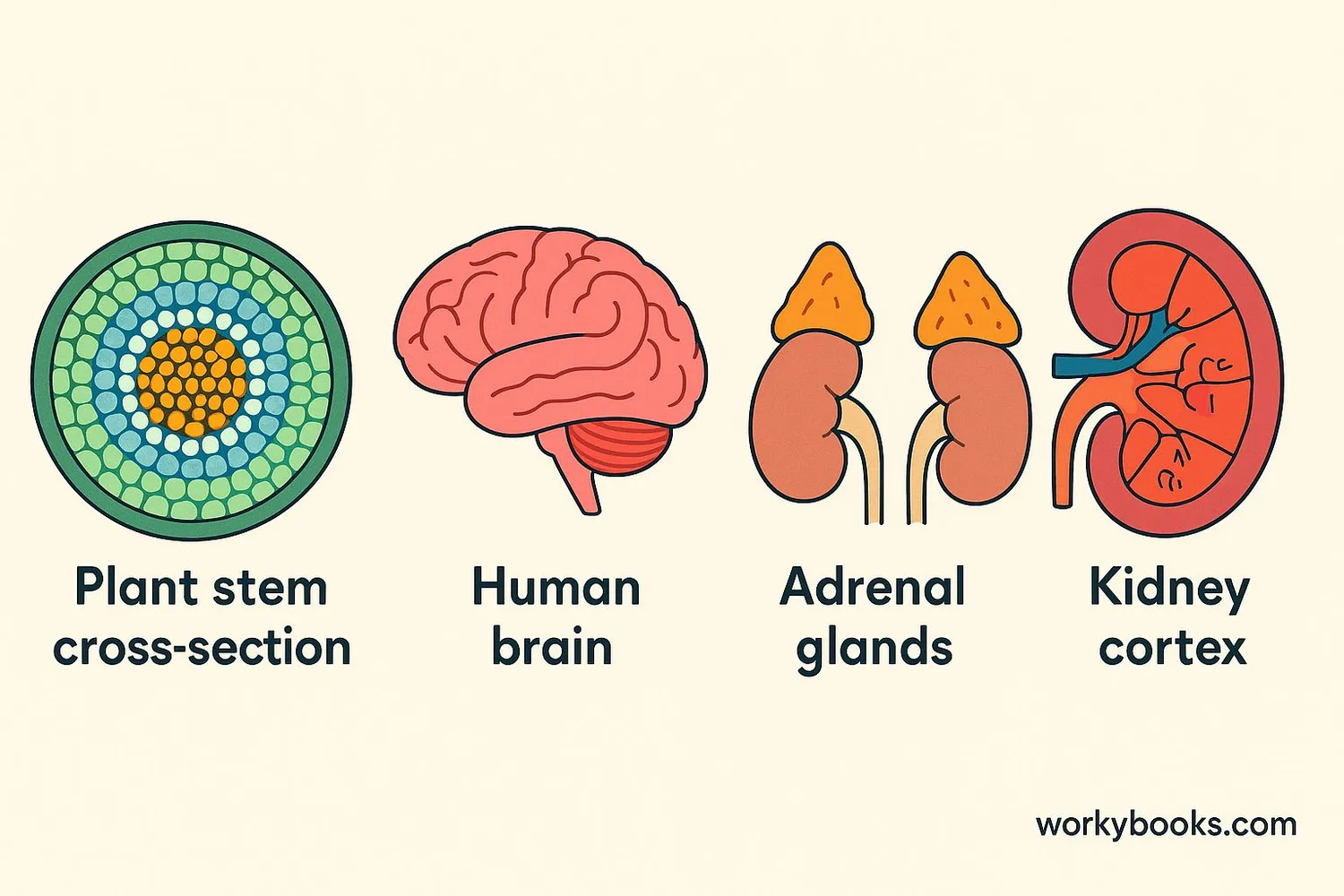
Cortex is a scientific word that means the outer layer of a structure. It comes from the Latin word for "bark," like the outer covering of a tree. Cortex can be found in many places in nature:
• In plants, it's the tissue between the outer skin and the inner parts
• In our brain, it's the wrinkled outer layer where thinking happens
• In our body, we have cortex in adrenal glands and kidneys
All these different cortex areas share something in common: they're important outer layers that protect or help with special functions!
Science Fact!
The word "cortex" is used for outer layers in biology because they reminded scientists of tree bark!
Plant Cortex
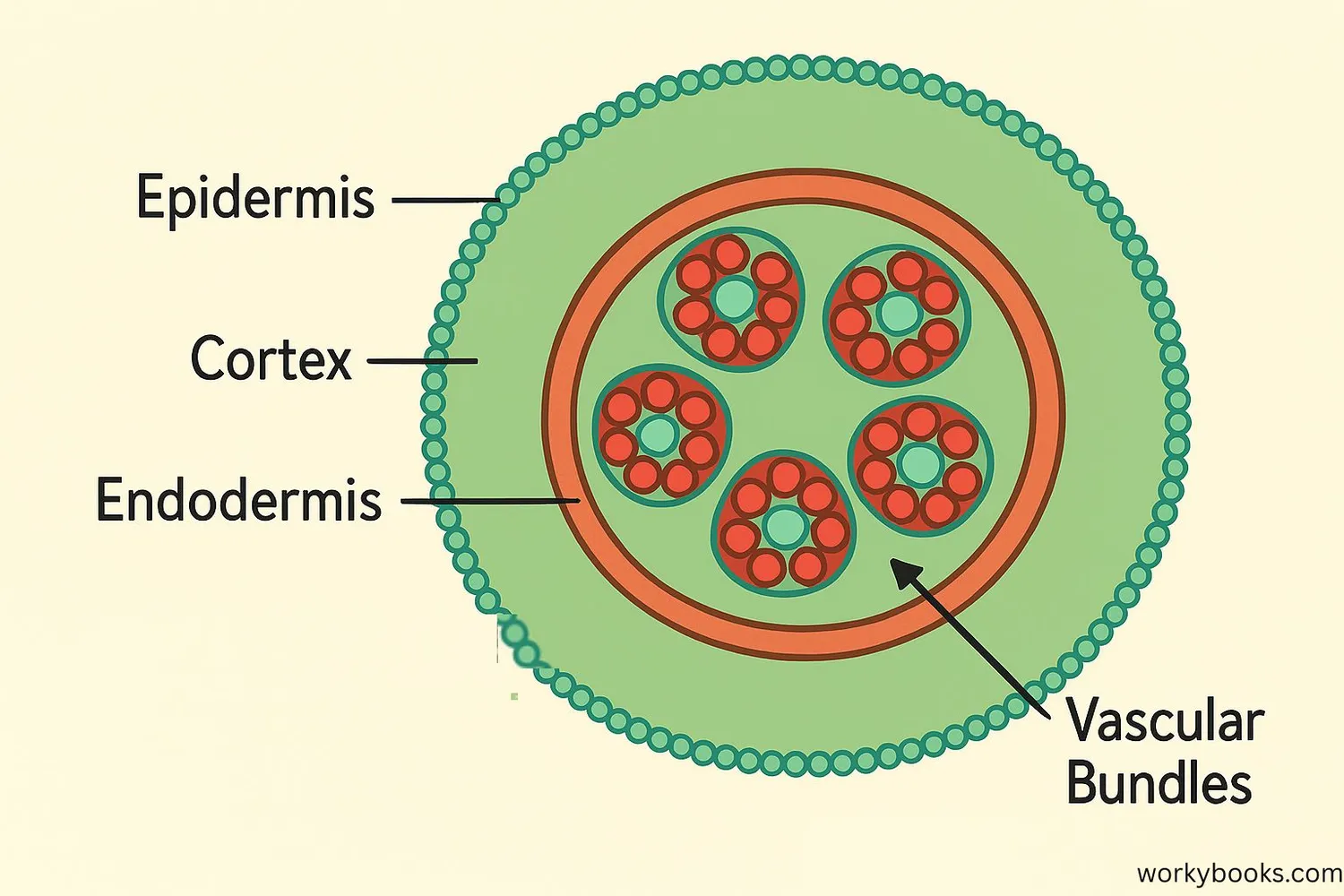
In plants, the cortex is the tissue between the outer skin (epidermis) and the inner vascular tissue. It's like the plant's packing material that fills the space inside the stem or root.
The plant cortex has important jobs:
Storage
Stores food like starch and water
Transport
Helps move water and nutrients
Support
Provides structure to the plant
In roots, the cortex has special cells that help absorb water and minerals from the soil. In stems, it helps store food and provides flexibility so plants don't break in the wind.
Plant Fact!
When you eat a potato, you're actually eating the cortex tissue of the potato plant!
Cerebral Cortex
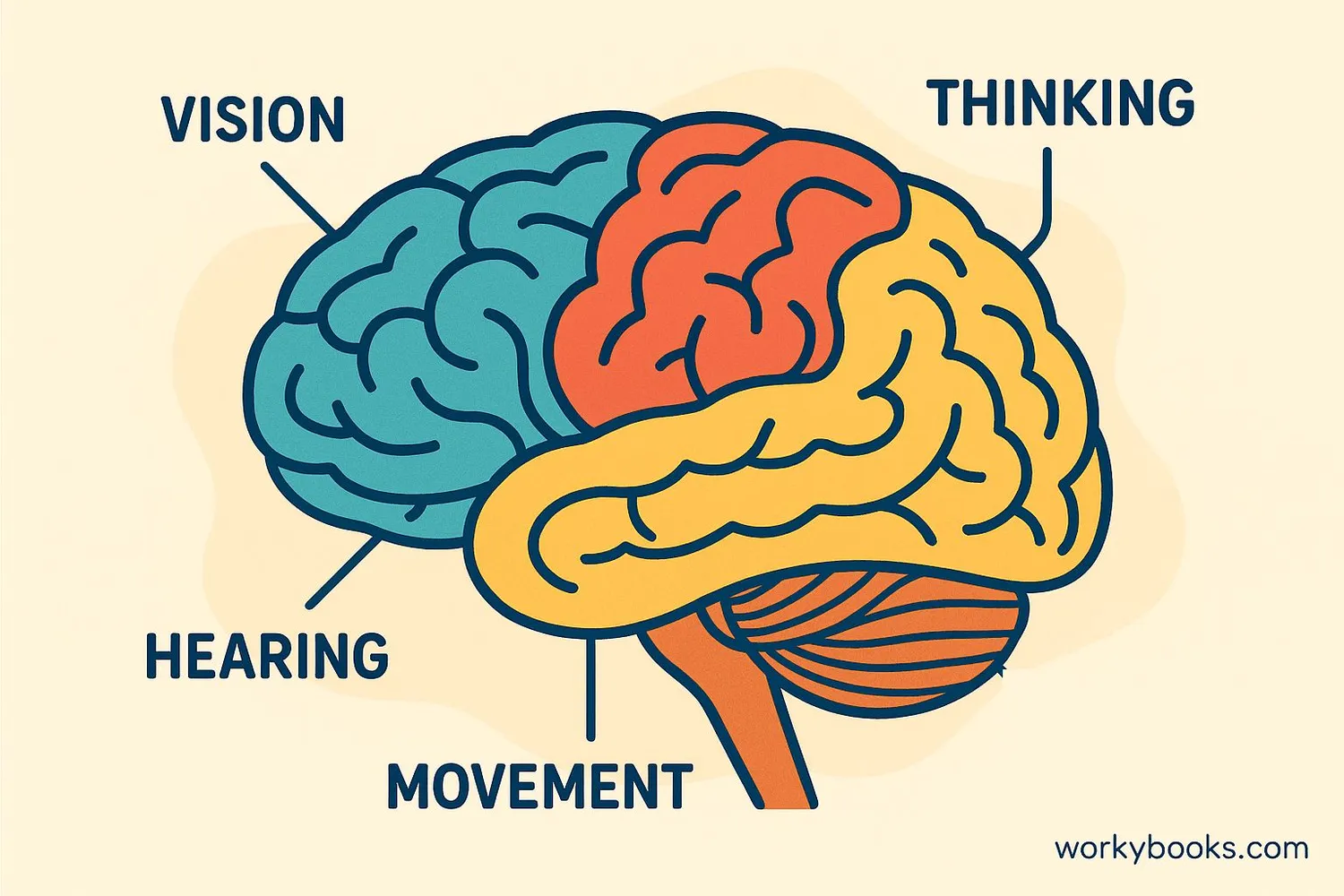
The cerebral cortex is the wrinkled outer layer of your brain. It's only about 3-4mm thick (like 3-4 stacked dimes), but it's packed with billions of nerve cells!
This amazing brain cortex is responsible for:
Thinking
Problem solving, decision making, learning
Language
Speaking, understanding words, reading
Senses
Processing what you see, hear, and feel
The wrinkles in your cerebral cortex are called gyri and sulci. These folds allow more brain tissue to fit inside your skull - without them, your brain would need to be about 3 times larger!
Different areas of the cerebral cortex have special jobs. The visual cortex processes what you see, the auditory cortex handles sounds, and the motor cortex controls your movements.
Adrenal Cortex
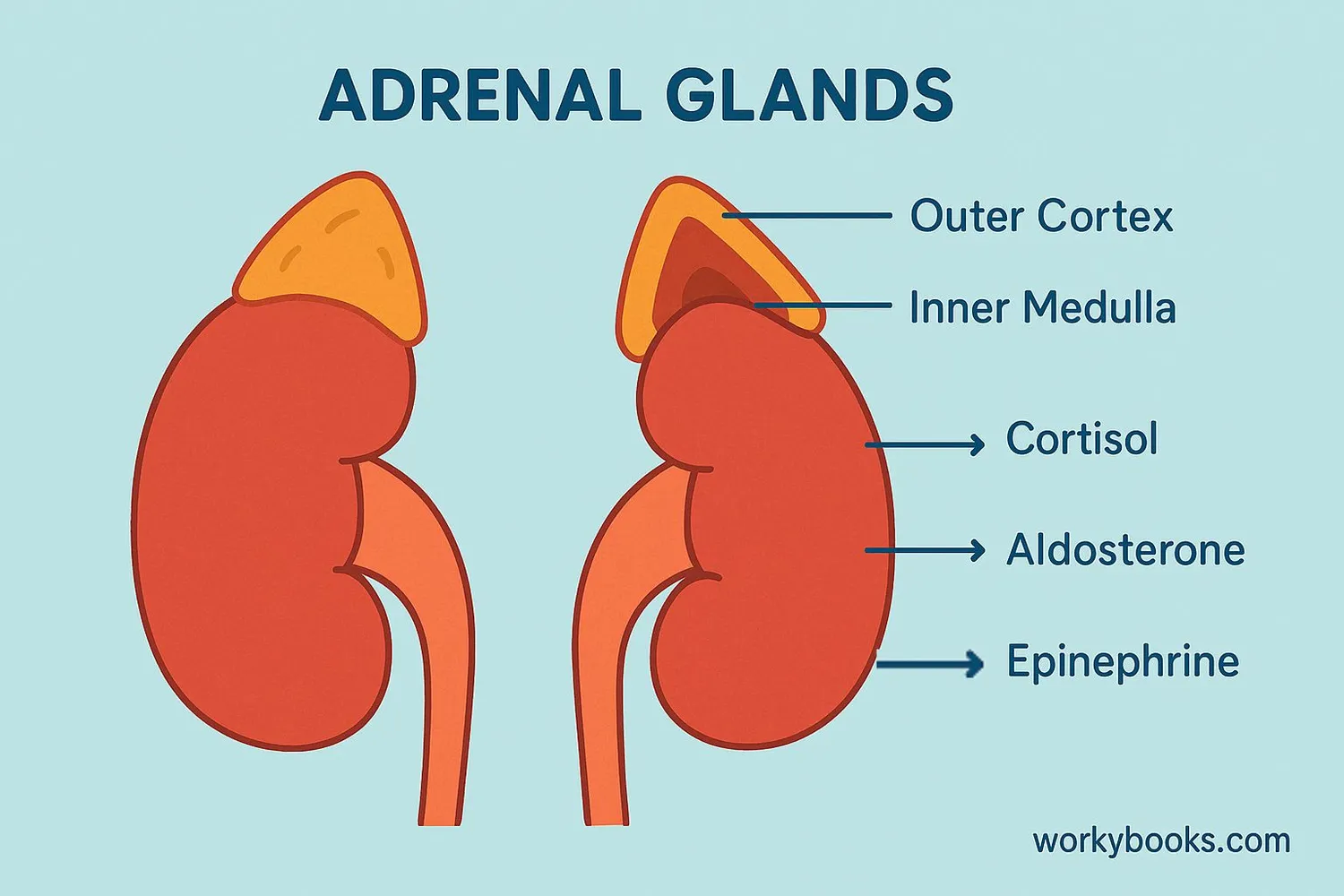
The adrenal cortex is the outer part of your adrenal glands. These small glands sit on top of your kidneys like little hats. The adrenal cortex makes important hormones that help your body:
Manage Stress
Produces cortisol to help handle challenges
Balance Salt
Controls salt and water levels in your body
Develop
Produces hormones for growth and development
The adrenal cortex makes over 30 different hormones! The most important ones are:
• Cortisol: Helps your body respond to stress
• Aldosterone: Controls salt and water balance
• Androgens: Hormones that help with development
Without the adrenal cortex, your body couldn't handle stress, maintain blood pressure, or properly develop during puberty.
Kidney Cortex
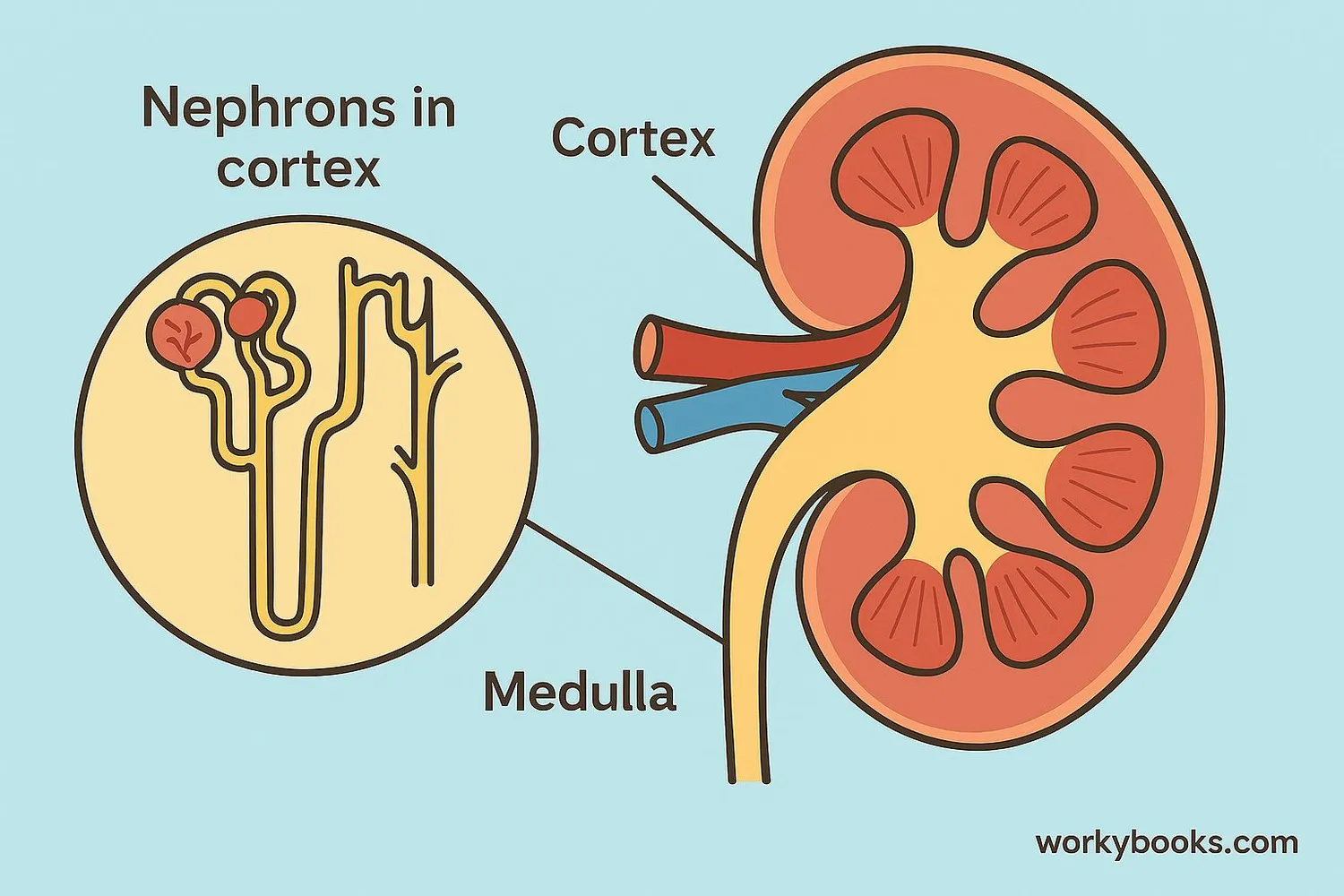
Your kidneys have an outer layer called the renal cortex. This is where the important filtering of your blood happens. Inside the kidney cortex are tiny filtering units called nephrons.
Each kidney contains about one million nephrons! The kidney cortex:
Filters Blood
Removes waste products from blood
Recycles
Returns useful substances to blood
Balances
Maintains water and salt balance
The kidney cortex is reddish-brown and contains all the glomeruli (the filtering part of nephrons). It works together with the inner medulla to produce urine and keep your blood clean.
Every day, your kidneys filter about 150 quarts of blood to produce 1-2 quarts of urine!
Cortex Quiz
Test your cortex knowledge with this quiz! Answer all 5 questions to see how much you've learned.
Frequently Asked Questions
Here are answers to some common questions about cortex:
Cortex Trivia
Discover some amazing facts about cortex:
Brain Power
The human cerebral cortex contains about 16 billion neurons! If you lined up all these neurons end-to-end, they would stretch about 1,000 miles.
Ancient Bark
The oldest known plant cortex comes from fossil trees that are over 385 million years old. Scientists study these to understand early forest ecosystems.
Filtering Masters
Your kidney cortex filters all your blood about 40 times a day! That means your entire blood volume passes through your kidneys every 30 minutes.
Animal Cortex
Elephants have the most folded cerebral cortex of any land animal. This extra folding helps give them excellent memory and problem-solving skills.





